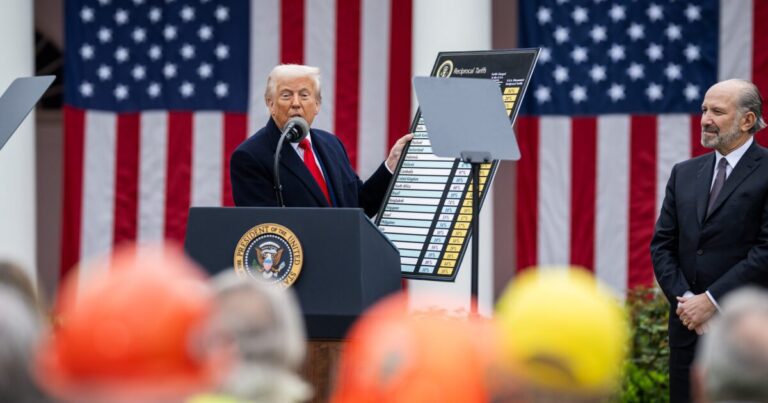Trump’s Tariff Strategy: A $4 Trillion Impact on the Deficit
Overview of Recent Developments
In an extraordinary revelation, the Congressional Budget Office (CBO) has projected that tariffs will lead to a significant deficit reduction of $4 trillion over the next decade. This projection, which surpasses an earlier expectation of $3 trillion made in June, highlights the increasing financial impact of the current tariff strategies implemented under the Trump administration.
Key Details from the CBO Report
According to CBO Director Phillip Swagel, the breakdown of the projected $4 trillion deficit reduction is as follows:
- $3.3 trillion from tariff revenue, directly reducing primary deficits.
- $700 billion decrease in interest payments on borrowings.
Growing Revenue from Tariffs
The rapid increase in tariff revenue has surprised even critics, leading some to argue that moving away from tariffs without securing alternative revenue sources could be detrimental. The Committee for a Responsible Federal Budget emphasized the importance of maintaining these tariffs, stating:
"Although there are many legitimate concerns over the tariffs – including their impact on the economy and the level of uncertainty they are creating – policymakers should not repeal them without an adequate replacement for the revenue loss."
Trump’s Response
Former President Donald Trump responded enthusiastically to the CBO’s findings, stating,
“I am pleased to announce that the Radical Left Representatives working at the Congressional Budget Office (CBO) have now admitted how incredible my Tariff strategy has been, saying that, ‘Trump’s Tariffs reduce the deficit by $4 Trillion Dollars.’”
Trump further claimed successes in various sectors:
- Deficits are decreasing.
- Taxes are lower.
- Energy costs are declining.
- Overall prices are down.
Conversely, there has been a notable rise in:
- Take-home pay
- Stock market performance
- Overall economic vitality, describing the U.S. as the “HOTTEST” economy worldwide.
Implications of Tariff Strategies
The implications of these findings are significant for economic policymakers and the general public:
- Skepticism about Tariffs: While the revenue generation from tariffs has been substantial, concerns about its long-term impact on the economy remain relevant.
- Future Policies: The political landscape could shift dramatically if tariffs are reconsidered without a solid financial alternative.
Conclusion
As the conversation around tariffs continues, the CBO’s latest projections present a compelling argument for their continued implementation. The potential for a $4 trillion reduction in the deficit cannot be overlooked, making tariff strategy a pivotal part of the current administration’s economic policy.
For more detailed insights into this financial strategy, consider reading reports from authoritative sources such as the CBO or financial news outlets.
Stay informed on the latest developments in economic policies that could shape the future financial landscape of the United States.


